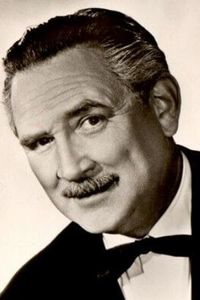Gustav Knuth, a celebrated German actor of notable distinction, came into this world on July 7th, 1901, in the historic city of Brunswick, Germany. From a relatively early age, he demonstrated a profound fascination with the art of acting, which would ultimately prove to be a defining characteristic of his life's work.
It was under the guidance of the illustrious Casimir Paris, a renowned actor of his time, that Knuth received valuable lessons in the craft of acting. This period of tutelage served as a crucial foundation upon which Knuth would later build his subsequent stage debut at the esteemed Stadttheater Heidelberg in 1918. This marked the beginning of a career that would be marked by numerous accolades and a lasting impact on the world of German theatre.
The remarkable journey of Knuth, a talented individual who dedicated himself to refining his artistic skills from a young age. His early years were marked by a relentless pursuit of perfection, as he took to the stages of Hamburg and Basel, Switzerland, honing his craft and developing his unique style.
As his reputation began to grow, Knuth's path eventually led him back to his hometown of Hamburg, where he would lay the foundation for a successful career in the world of film. It was in 1935 that he achieved a major breakthrough, with the unexpected success of "Der Ammenkönig", a film that would pave the way for a series of notable movie roles.
This early success was followed by a string of iconic performances, including the highly acclaimed "Great Freedom No. 7" in 1944, and the beloved "Sissi" trilogy in the 1950s.
After the conclusion of World War II, Knuth's professional career in the theatre continued to experience a significant surge in success, with his membership in the esteemed Schauspielhaus Zurich ensemble and his residency in the picturesque town of Küsnacht, situated in the heart of Switzerland.























